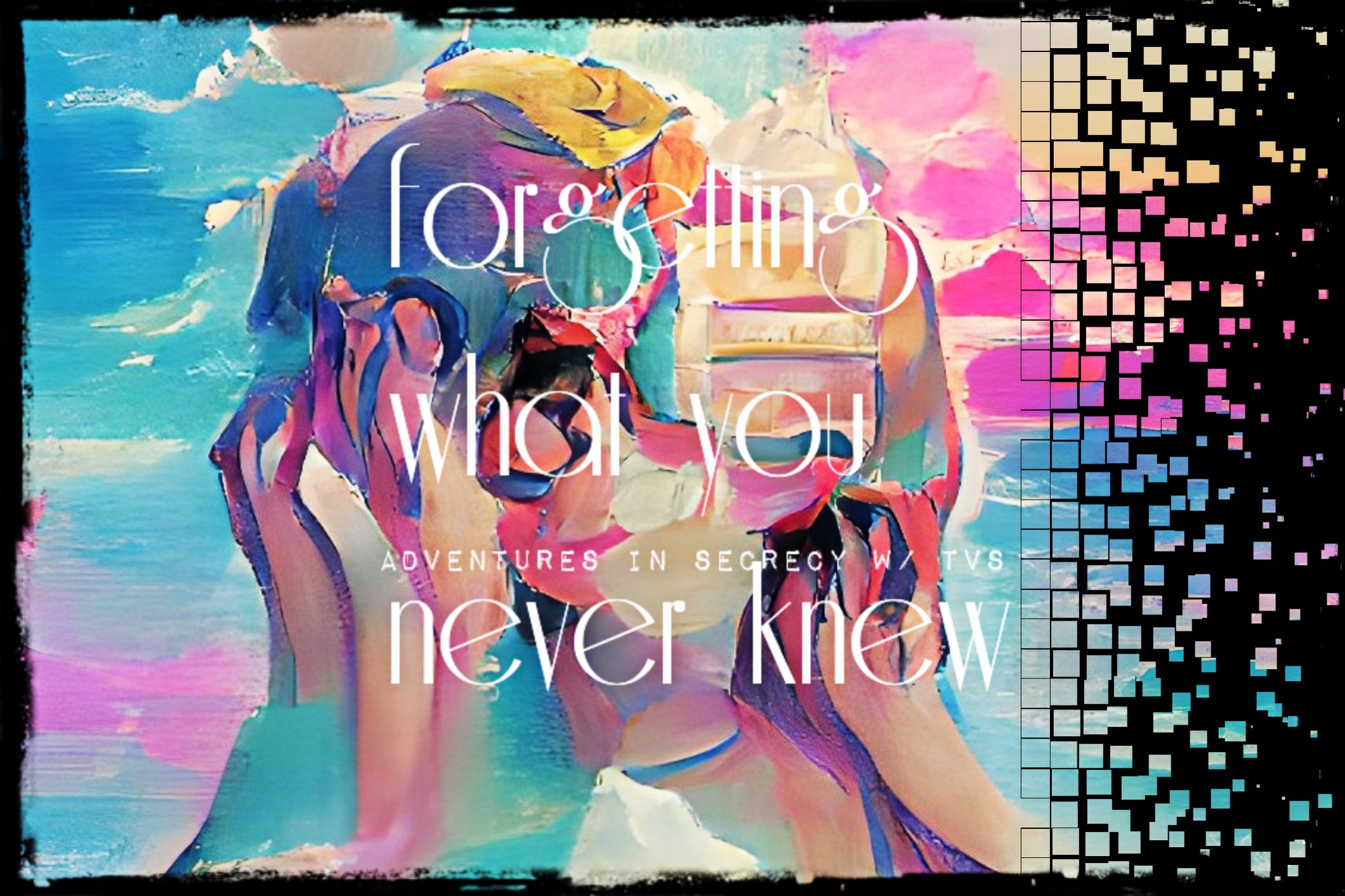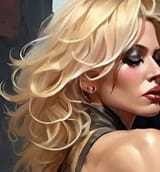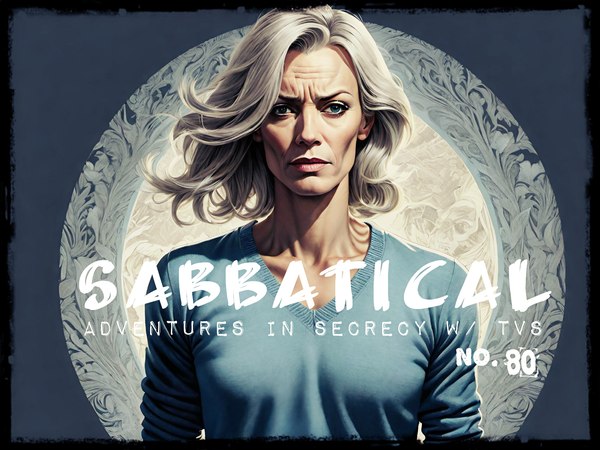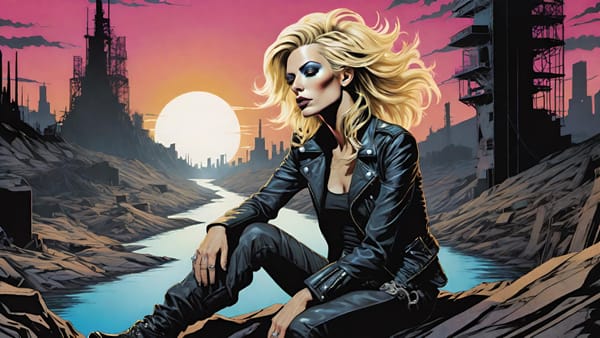Forgetting What You Never Knew
In the world of writers, you could say there is an entire other occupation of writers who write about writing and being a writer. Now there’s loads of that happening in fiction, too, but I’m referring here to nonfiction. Consider, if you will, the very thing you’re reading. This is an example of what I’m referring to, making it a kind of self-commentary, I suppose. That’s not lost on me, which will be important in a moment.
Write What You Know?
Just as for decades social scientists bickered over nature vs. nurture before collectively going, “Oh. Duh! It’s both!” writers (seems to me especially fiction writers, but I can’t back that up) have debated this idea of writing what you know vs. what you can imagine. Loads of midground there, as I’m sure you can see, since after all no one knows everything, everyone knows something, and there are loads of things no one really knows about and so we can only speculate—hence, speculative fiction, but moving on …
What may be important to know—and it was a college friend of mine, an English major, who called my attention to this—is what other people have done before you. We might call it a sense of history, a reverence for the past, a respect for the work of others, or if you’re super pro-cappy: market research. But in any case, you know what’s already out there, what’s been done, by whom, when, and how. You recognize that, like it or not, you are not alone in a tower somewhere spinning out literary gold of the first kind. Or maybe you are alone in a tower somewhere, as writers often are, but the folks who will get their grubby hands on your magnum opus are going to have already read, seen, and heard other things, and their mind (through a process called apperception) will make meaning from it, and (through another process called assimilation) will compare it to other, similar ideas. If they don’t have any similar ideas in mind, they’re likely to declare it: “Original, innovative, and fresh! Five stars! Highly recommend!” Or, more likely: “Frustratingly confusing. Everyone loves this books but it makes no sense.” Both extremes tell a seasoned reader that such a reviewer hasn’t read very much. I don’t mean that to be unkind; people are forever communicating, and one way we give information to each other is subtle. We communicate what we don’t know by how we pronounce what we claim to know. I’m doing that right now, though obviously I cannot tell you how, which is precisely the thing I mean: it’s a blind spot.
So even though we can’t knowingly write our blind spots, we certainly do write them, every time we go and put words into the world. We most certainly write what we don’t know, perhaps especially when we think we are writing what we do know (or think we know, as it were).
Common Blind Spots
So ‘common’ is a tricky word. Let’s say here I mean something like blind spots I often see in Internet-based writers in and around 2022. How’s that?
I won’t bore you with the fallacies of logic, nor will I go over what cognitive biases are. You can read about those if you want. Obvi those are super common. But these that follow are specific to writers writing about writing and being a writer. Ready?
Writers as entrepreneurs, aka capitalists
More specifically, I should say ‘writers as the petite bourgeoisie.’ Put as simply as I know how (see what I did there?), let’s say writers fall into that class of merchants who want to be like the rich and powerful, who (often unknowingly) imitate the values, attitudes, and rules of the wealthy, and who both have access to the means and methods of making their craft, art, or service, but must also do the work themselves. In the case of nearly every writer, we want to do the work ourselves. That’s the whole thing.
This is often talked about in either a working class manner, or a middle class manner. [Ed. To my non-US readers, forgive me. I’m speaking here of ‘Murican working class and middle class, which is quite different in many respects from, say, their English counterparts. I know enough to know there’s a lot I don’t know there. Feel free to annotate and expand in the comments.]
The working class bit is the uszh, right: “I’m just tryna make a livin’ here.” That kind of thing. Writing tends to be seen as a craft more than an art. It’s something you do. No big whoop.
The middle class is, as you might expect, much more neurotic. It’s an identity, and as such, often an identity crisis. Now, there are loads of reasons not related to social classification or stratification that can lead one to an identity crisis. I acknowledge that. But that’s not what we’re examining here. Here, we’re looking at the ones that are related to socioeconomic class.
The middle class is, well, in the middle. Their (or our) narrative is that we hold the two extremes of the rich and the poor together. We’re the glue that keeps society solid and blah blah blah. Really, we’re the middle management oppressors of the poor and as importantly each other. Everyone has to stay in line and lockstep if this shit’s gonna work, yeah? If all the not-rich got together and decided this was a load of horseshit and we’re gonna do things differently … wait, why aren’t we doing that, again?
But instead, we have influencers, the Instafamous, and other forms of prole upgrades that keep the middle class dreamin’ that Merkin dream that “anything is possible if you just work hard.” In fact, if America has a favorite bedtime story, that’s it. No one likes the sister story of: “Once upon a time, a bunch of folks tricked other folks into working super hard their whole lives so they didn’t have to and could do whatever they wanted.”
Okay, so I’m probably belaboring this point. You get it. You may agree, you may not, but you likely understand.
Writers as guardians of morality
Related but maybe even less talked about is the role that storytelling plays in the prescription of morality. By that here I mean what is good and what is bad, what is beautiful and what is ugly, and what is acceptable and what is unacceptable. I mean, if you stop and think about it, it’s really quite obvious. Every religion is based on a story or set of stories. What’s less obvious is how we’re all writing that kind of thing just without much conscious awareness of it.
One way this gets pointed out is usually through counteraggression. The writer responds with hostility to what they perceive as an attack (maybe it was, maybe it wasn’t), and then decry the work as being polemical or moralizing or (lately) ‘woke.’ (Don’t get me fucking started on ‘anti-woke’ fascists.) But basically it’s the equivalent of the kindergarten response of “nuh-uh” or “I know you are, but what I am?”
It’s worth mentioning that almost no one likes to be called on their shit. Most folks these days (on the Internet, anyhow) seem to wanna ball around Mad Max (or Furiosa, if you prefer) style, whippin’ their text-based, um, gun out and unloading on the savage barbaric fuckers that they encounter in that digital wasteland. [Ed., Okay, so maybe I’m getting tired of writing nonfiction today and need to switch to fiction. Gimme a break, m’kay.] They’re not looking for conversation, really, and certainly not anything that might prompt them to take an honest look at themselves. They’re after a dopamine rush that comes from a quick reaction, maybe an adrenaline spike here or there from a brief tussle, and then on to the next thing, which could be something boring and normal, like paying a utility bill.
So Now What, T?
You say, “Okay, T. You’ve schooled us on all the ways we can fuck up—by doing some of those same things, by the way. So what the fuck are we to do instead?”
Good question, You!
I’ll give one possible answer. I once made a list of overused sf tropes1, and people were pretty annoyed. One writer went so far as to ask, “What would you have me write about?” Can you intuit my answer? It was: “Literally anything else.”
So there you go.
Xoxo,
T
AIS 0027

For the curious, here is it …
Speculative fiction tropes people need to stop writing about; or, at least come up with a substantially different take on:
A.I.
Let me say that one again: A.I.
'Dystopia' and allied 'when it all went to shit' settings
Space travel
Time travel, especially as though time and space are like a linear film strip, but time travel in general is pretty boring at this point
'Capable man' stories
Disaster novels set in the present or near future
Steampunk
In fact, any kind of '-punk;' or, at least stop calling it that. It's a dumb neologism from cyberpunk, none of which have anything to do with punk
Vampires
Werewolves
And the people that love them
Zombies and related viruses
Nuclear war; again, as it has been done so far
Fairies, in all spellings
Large scale 'galactic' empires
Space marines
Giant robots
Clones; rather, the imaginary awful sci-fi versions. Real clones? Totally fine.
Colonization
Nanotechnology
Exotechnology ↩





